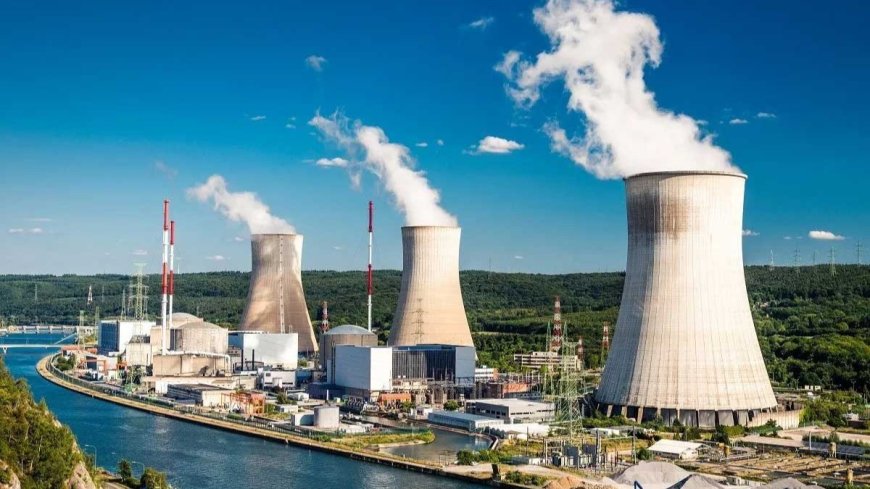From Non-Alignment Approach to Nuclear Tensions: Indonesia’s Nuclear Energy Strategy
In recent years the adoption of renewable and nuclear energy has garnered substantial support across numerous nations prompting significant investments aimed at harnessing these vital energy sources. As the depletion of fossil fuels looms inexorably on the horizon only renewable and nuclear energy stand poised to address the global energy demands of the future.

By: A. Yeganeh
In recent years the adoption of renewable and nuclear energy has garnered substantial support across numerous nations prompting significant investments aimed at harnessing these vital energy sources. As the depletion of fossil fuels looms inexorably on the horizon only renewable and nuclear energy stand poised to address the global energy demands of the future.
Within this context Indonesia—a key nation in Southeast Asia—has long demonstrated its commitment to advancing nuclear energy initiatives. Recently Indonesia officially entered the global nuclear community commissioning its first nuclear power plant a milestone facilitated by its abundant domestic reserves of plutonium and uranium which will ensure a steady supply of fuel for its nuclear ambitions.
Indonesia’s journey toward nuclear energy has been underpinned by a decade of rigorous planning and research. The timing of this initiative however invites scrutiny and warrants examination from multiple angles:
First the volatile geopolitical climate of Southeast Asia cannot be overlooked. This region perpetually straddling tensions emanating from the North and South Korean divide necessitates a military posture among its nations. Against this backdrop Indonesia’s nuclear venture raises questions about its potential military dimensions. While Indonesia’s current trajectory appears focused solely on civilian energy production the latent possibility of military applications though improbable in the immediate term remains a subject of speculation. Regional powers such as China and Japan staunchly opposed to any expansion of military nuclear capabilities in Southeast Asia pose significant constraints on Indonesia’s ambitions effectively limiting its nuclear endeavors to peaceful applications.
Second Indonesia’s abundant natural resources play a pivotal role in its nuclear aspirations. The nation’s reserves of plutonium and uranium confer a distinct advantage enabling cost-effective and self-sustaining nuclear fuel production. This strategic resource endowment not only facilitates the establishment of multiple nuclear facilities but also underscores Indonesia’s potential to lead in regional energy innovation. Yet the archipelagic geography of Indonesia presents unique challenges. The seismic volatility of the region heightens concerns over the safety and security of nuclear infrastructure a concern that neighboring countries might leverage to exert pressure against Indonesia’s nuclear expansion citing regional stability and environmental risks.
Third nuclear energy is emblematic of national independence in the contemporary geopolitical landscape. Historically dominant global powers have sought to monopolize nuclear expertise resisting its dissemination to emerging nations. Indonesia’s pursuit of nuclear energy thus signifies a bid for autonomy and stature in the international arena. This aspiration aligns with Indonesia’s legacy of leadership in the Non-Aligned Movement—a pivotal initiative during the Cold War years led by Indonesia’s former Prime Minister. This movement once a beacon of sovereignty for nations resisting Cold War polarization finds renewed expression in Indonesia’s nuclear energy pursuits as the nation seeks to assert independence and influence within Southeast Asia.
Nonetheless Indonesia’s nuclear ambitions could provoke unease among its neighbors and potentially catalyze a regional arms race. As Southeast Asian nations observe Indonesia’s advancements they may vie to develop their own nuclear capabilities a development that risks drawing the attention—and intervention—of global powers. The precarious equilibrium of the Korean Peninsula underscores the potential for nuclear rivalry to spill over into Southeast Asia further complicating the region’s already fraught security dynamics.
From a broader perspective Indonesia’s nuclear energy program positions it as a rising power within the emerging multipolar global order. Boasting a robust economic foundation Indonesia holds the potential to serve as a linchpin in the geopolitical strategies of the Eastern bloc. In the event of escalating tensions on the Korean Peninsula Indonesia’s strategic alignment with Eastern powers could enable it to exert considerable influence over Southeast Asia consolidating the region under its sphere of influence.
In summation while Indonesia’s embrace of nuclear energy marks a significant milestone in its quest for energy independence and geopolitical stature it is not without risks. The move has the potential to ignite regional rivalries provoke international scrutiny and exacerbate existing tensions in Southeast Asia. Whether Indonesia’s nuclear ambitions will serve as a stabilizing force or a catalyst for discord remains contingent upon its ability to navigate these complex geopolitical dynamics with prudence and foresight.













































